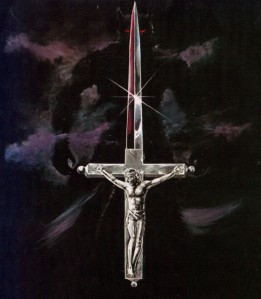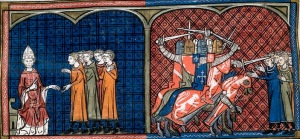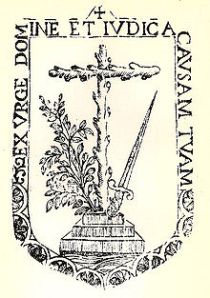Justice signifies a somewhat loaded, strange word.
Nowadays, the state thugs in the Amerikan Empire who scream the loudest about justice have also been its worst abusers against US citizens. Police and prosecutors normally put the word justice on their buildings, cars, uniforms, and within bizarre emblems that hang on their prison walls. The British writer George Orwell predicted this deranged behavior in his great book, 1984, (published in 1948), about the destruction of language, such as the term, peace, which really meant unending war and endless enemies.
The Amerikan Empire currently labels insecurity and fear mongering as security. High unemployment, lack of any social safety net for most Americans, and higher trading volume on the Stock Market, possess the label of economic recovery. The list of official lies, state corruption and elite criminality fills volumes from the pages of world history.
One peculiar ideology has helped twist human languages and meaning destruction during its long reigns of terror and error – and it still works wonders to this very day. This ideology birthed out of a group of west Asian people who called themselves Jews during the sixth century BCE. They were one of the captive nations under the Persian-Medean Empire at that time.
The Jewish elites had performed a miracle of language. They had codified diverse religious texts, taking stories from the Zoroastrian Avesta, picking laws and customs from the ancient Babylonian city states and the Assyrian Empire, and adding some religious mystical concepts from various, regional religious rites, such as the Carthaginians, Palestinians and Egyptians. They claimed to discover a righteous and brutal God in continual war against a despicable world order under the darkness of idolatry.
Those Jewish intellectuals transformed their holy book, called ‘Tanakh,’ into an often contradictory and bizarre hodgepodge of minute, regulatory, religious laws, such as Torah and Mitzvot, all of which was under a blood lineage priest class.
Their holy cannon also included a second section of prophetic dirges related to retribution and vengeance, or end times prophecies, such as Daniel, and the other Prophetic Books or Nevi’im. The third section regarded religious chants, psalms and miscellaneous religious axioms, such as Proverbs and Wisdom, or Ketuvim. In relation to the Torah, or the Five Books of Moses, were ancient Levant lore and legends, Joshua and Judges, and political-historical rival narrations, Kings and Chronicles.
The Jewish priests were the first people in human history to create a religious nation, with its temple center in Jerusalem, from a complete compendium of books, now called the Old Testament. In past history, it was the other way around. Those priests were quite successful in their religious-nation construction. But their religion of intolerance, authoritarianism and vengeance could only succeed, if they maintained an autonomous religious empire within a land mass continent, which also held much stronger pagan idolatrous empires.
After the full dedication of the rebuilt Second Temple, about a hundred and fifty years later from the Return of Exile, they soon had problems with the Seleucid Greeks. Then came the Romans, which also led to some jurisdiction issues. The Romans would eventually destroy the Temple and the city of Jerusalem in 70 A.D. Those Romans had mistakenly thought that they had done finally away with the annoying nucleus of judeo-monotheists.
We now know that the monotheists had their final laughs inside their own secret chambers. Judeo-Christianity eventually took over the Roman Empire by the sixth century A.D. Around a thousand years later, monotheism had fulfilled its long journey of control, but it was still not finished.
During the previous, fifth century A.D., the Christians had been in full battle mode, which was their modus operandi from the beginning. Their religious structure of bishops, priests and deacons actually resembled the efficient structure of the Roman army. The Christians revived the old Jewish prophetic tradition through the influence of mad preaching monks of the desert and of the cities. Like the Jewish priests of ancient times, the Christians began to write extensively against pagan intellectuals, philosophers and even against their old Jewish forebears. Bishop Saint Augustine of Hippo represented one of those most effective polemicists.
Using the same methods centuries earlier, the Christians, specifically Saint Jerome, had finally codified their own holy compendium of books, now called the New Testament. They even took the Old Testament as their own and transcended everything into the Holy Bible, or the Holy Book. All the other circulating Gospels, Early Church histories, Epistle letters, and prophetic texts, mostly related to the Gnostics, entered the dustbin of rejected accounts.
This massive organizational and militant project was only in its beginning stages however. The Christian movement moved into the full public sphere of spiritual and military agitation, while conducting religious rallies of revenge against their pagan enemies and diverse idolaters, such as the Neo-Platonists, Jews that refused the Christ, Mithraites, followers of the Goddess Isis, or anybody that simply stayed loyal to the Greco-Roman, Celt or Germanic religious traditions. The Christians especially proved virulent against their religious rivals, called ‘heretics and schismatics,’ such as the Manichaeans, Gnostics, Monophysites, Donatists and Arians.
On a hot day in March, 415 A.D., the Christians ordered the pagan woman philosopher, Hypatia, burned alive in the main square of Alexandria. The Christians would continue their mass murder of religious enemies for centuries to come. The authoritarian and Zoroastrian, Neo-Persian empire at that time, had suddenly found itself the lone defender of religious toleration!
Within this historical period, Christian mobs led by the mad monks and bishops soon burned the great libraries of Antioch and Alexandria to the ground. Why did the Christians support the burning of libraries? The thousands of rolled scroll books stored in those centers represented the most serious threats to the power of Christianity.
Christianity’s ideological power resided, and still resides, through its own narrow definitions of the most basic terminology within human civilization. Christianity has had its own restricted definitions for the most basic of words, such as belief, justice, good, evil, grace, understanding, truth, peace, hope, compassion, virtue, life, death, light, darkness, rebirth, suffering, pain, joy and freedom. Christianity, like other religious movements on the Earth, had even taken some of its lore and legends from rival religious movements, such as the ancient legends of the Buddha.
Christianity representing the only true faith has always demanded a strict adherence to literate dogma. Although it claimed its powers through faith, Christianity has always maintained some legalistic standards. It had to do this if it wanted to survive. Christianity demands total subservience to its doctrines. There are no alternative routes to salvation.
No other religious ideology in world history developed Crusade armies of religious fanatics to murder their religious enemies full-scale, including all women and children, like they did during the sack of Jerusalem July 15, 1099. Likewise, no other religious organization developed military orders, such as the Teutonic Knights in the Baltic region or the Knights of Santiago in northern Spain, to publicly hunt and murder pagans or apostates, as both groups were active during the 15th century. No other religious ideology in world history developed religious orders, such as the Franciscans and Dominicans to publicly fight heresy, institute anti-idolatry crusades, and set up mission stations that imprisoned the savages of ‘no religion,’ which they did to the California natives during the late 1700s.
Christianity is the only world religion that constructed an efficient, legal machine to destroy and murder heretics, or any other free thinkers, contrary to the doctrines of the official faith. The institutional name was the Inquisition, which actually lasted for six hundred years, 1230-1830 A.D.
Christianity is the only religion that has sent out to the world its innumerable missionaries, or really culture destroyers, or even more so, the first non-governmental agency subversives, which enabled the larger and sinister European empires to control vast amounts of lands in the Americas, Pacific, Africa and in Asia from the 1500s until today.
The cult of Judeo-Christianity has fomented multiple wars of conquest to destroy its endless enemies across the globe, like it did in Spain during the 1930s, while it has instituted internal wars of extermination, which they did against women, labeled witches during the 16th and 17th centuries. It even forced young girls to live the rest of their lives imprisoned in convents during that same period. Finally, the churches have always instigated violence against the Ashkenazi and Sephardi Jewish ghettos that lived under their domains.
Christian monotheism represents the most extreme ideology that has repressed and mercilessly persecuted freedom fighters who dared to practice or defend the basic love-making instincts of humanity, whether auto-eroticism, homo-eroticism or any other act of eroticism outside of marriage. Behind almost every modern reactionary political movement, or movement against personal freedom, or any cult demanding some type of censorship, even bans or control of art, there exist activist-fanatics, often found in various extremist sects, while feeding within the multiple cocoons of Christianity.
Due to Judeo-Christianity’s powers and successes in fomenting wars, continually sending out missionaries and demanding the sacrifices of millions of souls, other world religions have tried to become just as militant, such as Islam, Buddhism, Judaism and Hinduism.
Yet no other world religion or secular ideology can compete with the power of Christianity. This religious ideology now has the most adherents in the world. Christianity’s historical methods have explained clearly the reasons for such success.
The real agenda of Christianity has been extremism, the outrageous and imaginative creations of monsters and evil representations, continual and militant warfare, the cruelest methods of torture and violence, deep persecution-paranoia complexes, obsessions with the control of others, the ceaseless murdering of enemies, and it has been one of cultural foundations for modern Fascism.
The true hero of the passion of Christ, was not the whipped god-man hanging on the cross, but the traitor-snitch, Judas, who allowed the scriptures their ultimate fulfillment. He then repented of his sin and later hung himself all alone on that dark hill. His Passion was the Gospel Truth.
The true spiritual god of Christianity was not the mystical spirit of the Christ, but Satan, the God and Prince of this World, using whatever means necessary to rule over the souls of humanity. The Glory of Christian Civilization was the Italian Renaissance, and its Bible was Machiavelli’s, The Prince.
How did a religious ideology masking such hidden evil take over so many nations and empires across world history? Like Constantine, the roman general usurper turned emperor, the criminal state easily spotted Christianity’s power through its militant and vicious religious practices. The state loves war, and any religious ideology that embraces it tends to work fine within the power arrangement. Christianity has often molded itself to the whims of pliant states. For example, Christianity fully supported and encouraged genocidal African slavery in the Americas, and its corresponding ideological lie, the heinous lie of racialism.
But with Christianity’s heinous history, it has also breathed a double-edged sword against power. The Christian religion has also stabbed mortal wounds into crooked state apparatuses when they have least expected it.
Anarcho-historians ought to remember that Christianity was the first revolutionary organization in world civilization. The elites and the state both know this truth, and this often explains their ambivalence and secret fear of Christianity’s militant powers. Christianity can become the greatest defender of the state criminals – and yet, it can always turn completely around – and transform itself into the state authorities’ most pressing internal enemy.
World history supports this thesis. The first uncompromising abolitionists in the British West Indian colonies during the nineteenth-century were Baptist preachers. During the English Civil War of the seventeenth-century, the most radical revolutionaries were the Christian Diggers and Levellers. Frances’ most resolute and intellectual defenders of the Nation during the seventeenth-century, versus the degenerate Monarchy of Louis XIV and his palatial paradise of Versailles, were the religious movements of the Calvinists and Jansenists. The strongest political opposition against the medieval English tyrant, King Henry II, had the face of Beckett, the Archbishop of Canterbury. The Catholic monarchs united in unison to destroy the Jesuit Order during the eighteenth-century. They knew that the Jesuits possessed more popular admiration fro their subjects than for the sacred monarchies.
Christianity has also spawned the great activist work of the Quakers, the revolutionaries of John Brown’s raiders against the Slavocracy in the US during the 1850s, the civil-rights agitations of Martin Luther King and other the ministers marching across the US against official segregation in the 1950s, the Northern Irish Catholics marches in the 1960s, which led to the armed campaign of the IRA. During the Franco Fascist regime in Spain, Basque activists organized themselves into a nationalist club, while they studied at a Jesuit seminary in northern Spain. This proto-nationalist movement eventually transformed into the armed struggle of ETA. Even the mass murdering Communist dictator, Josef Stalin, began his higher studies in an Orthodox Christian seminary.
The US government had to finance and train hundreds of state murderers from Latin Americans in order to murder their fellow citizens, all in order to combat Liberation Theology from the 1960s to the 1990s. This essay cannot even do justice to the number of historical times that Christianity has successfully turned on its old state supports, and then destroyed those same state and elite collaborators.
The historical lesson for us Anarchists is simple. The religious ideology of the Judeo-Christian Monotheist Cult has been a perfect representation of human absurdity lurking within our evil world.
It has more often supported reaction and mass murder, yet some of the most effective revolutionaries have burst forth from its roots, while such political activists have successfully undermined the legitimacy of the state.
Unlike our Marxist sect and Leftist-reformist mortal enemies, we Anarchists must not forsake nor reject the work of these Christianity inspired revolutionaries. Their intensity of revolutionary work knows no bounds. The Christian in revolt against both the State and the rich Elites often works alone, outside of the official, institutional churches. We don’t have to join their religious confessions, but we can encourage each other through our constant struggles against the economic elites and the criminal state.







